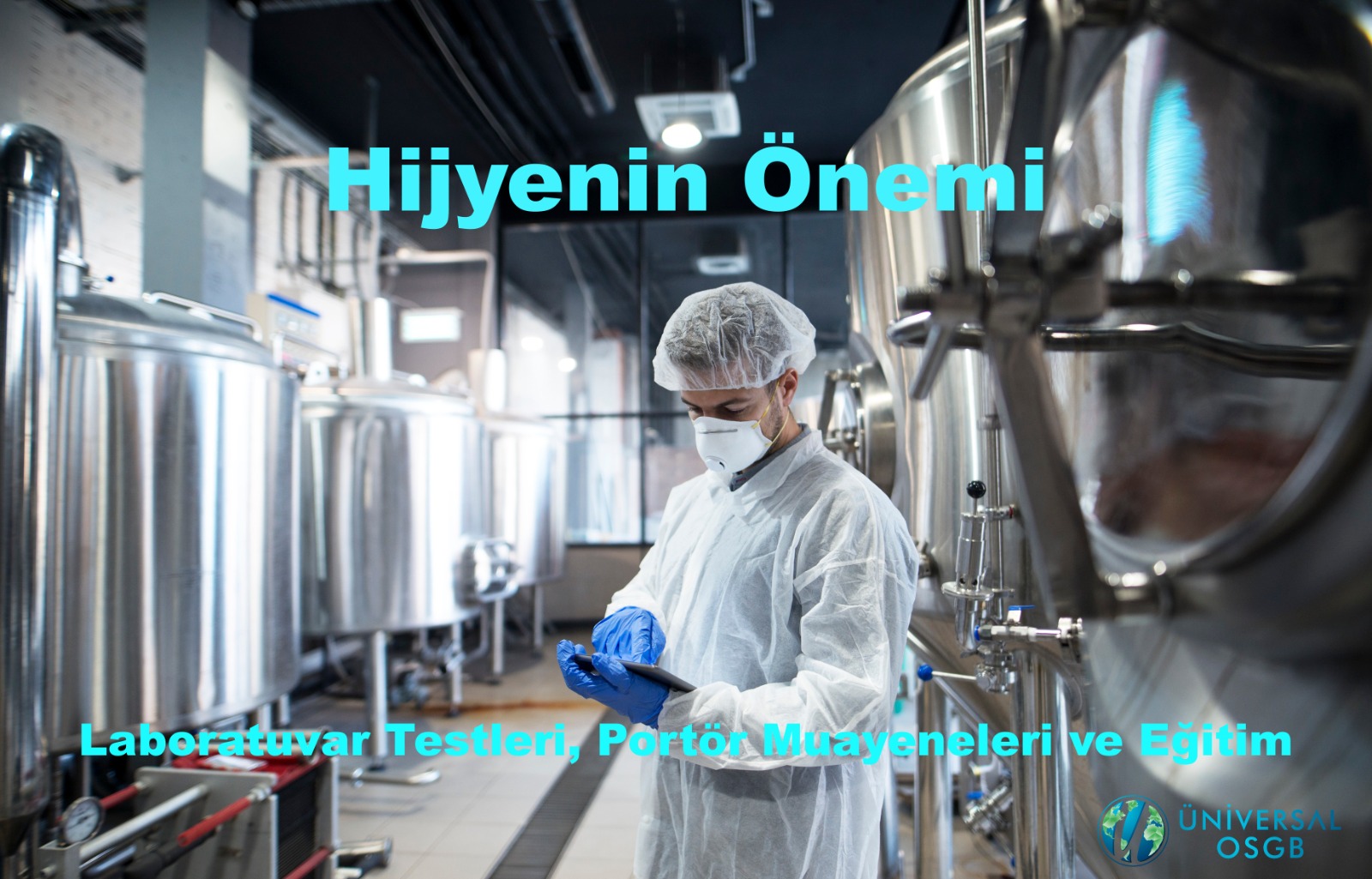
The Importance of Hygiene in Food Production Companies
The Importance of Hygiene in Food Production Companies: Laboratory Tests, Carrier Examinations, and Training
In the food production sector, hygiene is a critical factor in terms of product safety, consumer health, and brand reputation. According to World Health Organization data, foodborne diseases continue to be a global problem affecting millions of people every year. Therefore, food production companies must fully comply with hygiene standards, both to protect public health and to fulfill their responsibilities within the framework of legal regulations.
- Hygiene Practices in Food Production
Hygiene must be meticulously implemented not only on the production line but at all stages—from raw material supply to packaging, from storage to distribution.
Main hygiene practices include:
Personal hygiene: Hand cleanliness of employees, use of protective clothing, prohibition of jewelry and accessories.
Environmental hygiene: Regular disinfection of production areas, pest control, ensuring water quality.
Equipment hygiene: Cleaning and disinfecting machines in accordance with maintenance protocols.
Traceability: Recording all processes from raw material intake to product shipment.
- The Role of Laboratory Tests
Laboratory tests are indispensable for measuring the effectiveness of hygiene practices and verifying product safety.
Main tests include:
Microbiological analyses: Control of pathogens such as Salmonella, E. coli, and Listeria.
Chemical analyses: Checking whether pesticide residues, heavy metals, and additives are within permissible limits.
Physical analyses: Detection of foreign matter.
These tests should be conducted both in the production environment and on the final product and must be verified by accredited laboratory reports.
- Carrier (Portör) Examinations
The health of personnel working in food production is a direct risk factor for product safety.
Carrier examinations are performed at regular intervals to determine whether employees carry infectious diseases.
Especially the early diagnosis of diseases such as hepatitis, tuberculosis, dysentery, and Salmonella eliminates the risk of outbreaks.
Ensuring that unsuitable personnel are not allowed into the production area is one of the most important links in the hygiene chain.
- Employee Training
Hygiene culture develops not only through procedures but also with the awareness and consciousness of employees.
Orientation training: New employees are informed about hygiene rules and occupational safety standards.
Periodic training: Conducted in line with current legislation, hygiene standards, and the HACCP (Hazard Analysis and Critical Control Points) system.
Practical training: Handwashing techniques, use of protective equipment, and emergency procedures are reinforced through drills.
Hygiene in food production is a process that requires continuous control and training. Products secured through laboratory tests, a healthy workforce supported by carrier examinations, and employees made aware through regular training ensure safe delivery to the consumer. For companies, hygiene is not only a legal obligation but also an ethical responsibility towards society and human health.
Contact us for more information.
Üniversal OSGB
Occupational Safety and Worker Health Center


